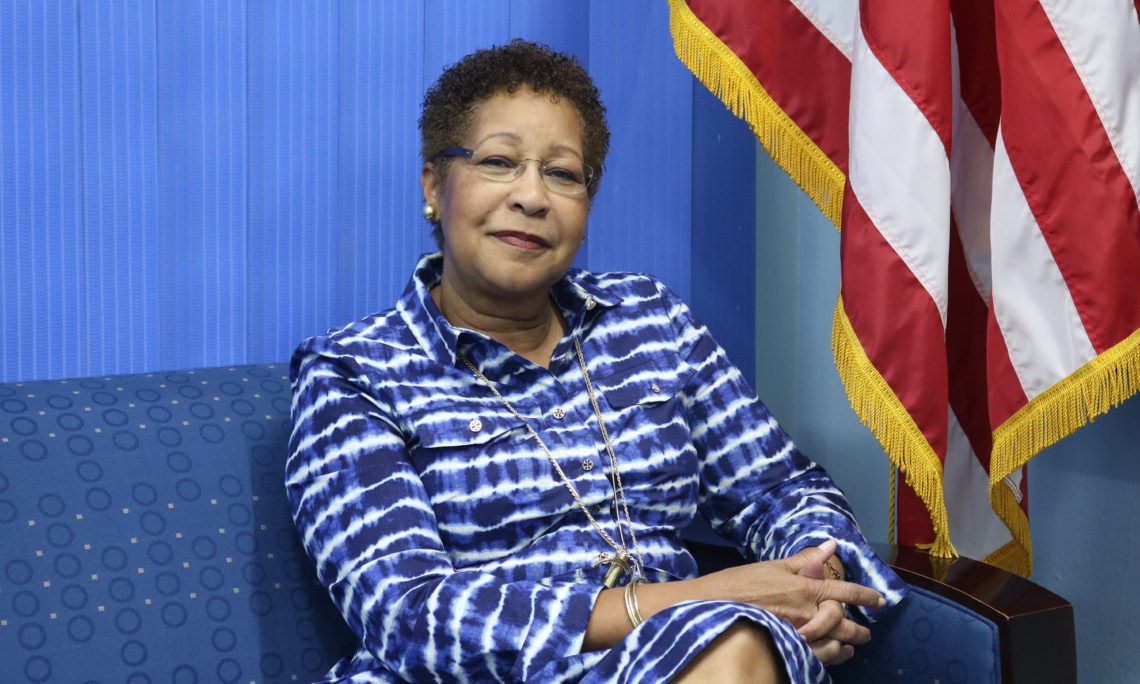Over the past several days, I have read with concern some of the stories about Gambian deportees returning from the United States. I would like to clear up some misunderstandings and provide more information about this process, and about the important partnership between the United States and The Gambia.
It is important to remember that the United States is a nation built on respect for the rule of law, and this includes our immigration law. Just as The Gambia has the right to determine who may or may not stay in The Gambia, the United States also determines who is allowed to visit the United States, for how long, and under what conditions. When non-citizens are convicted of crimes in the United States, or when they have overstayed their allowed time in the country, the U.S. Immigration and Customs Enforcement Department (ICE) is responsible for returning them to their home countries, when ordered to do so by a U.S. immigration judge. Since 2015, ICE has repatriated Gambians in the United States via commercial and charter flights, including the 36 Gambian deportees returned to The Gambia on a charter flight in early March.
An immigration judge presides over full and fair immigration proceedings for each individual. Individuals who have exhausted all their legal options and are found ineligible to remain in the United States are ordered removed to their country of origin. Conversations between various entities within the United States Government and the Government of The Gambia to repatriate Gambian citizens who are in violation of U.S. laws have been ongoing for over a year with the objective of coordinating lawful repatriations by commercial and/or charter flights as appropriate.
When individuals refuse to return home on a commercial flight, sometimes after causing a disturbance at the airport, ICE Air Operations conducts special charter flights. In accordance with ICE policy, individuals on removal flights are restrained for the duration of the flight for safety reasons. ICE personnel take every precaution to ensure the safety and welfare of those in their custody, as well as the crew and other personnel on each removal flight. As with all removal flights, on the March charter medical personnel from the ICE Health Service Corps assessed each individual and determined all were properly fit to travel. ICE also provided a nutritionally balanced diet, prepared and presented in a sanitary and hygienic food service operation during the flight. Well in advance, the United States Government advised the Ministry of Foreign Affairs of the charter flight that garnered recent attention, and the Gambian government authorized the flight’s landing clearance and arranged for the appropriate personnel to be on hand for its arrival.
Prior to departure from the United States, each deportee has the opportunity to sell or otherwise dispose of his or her personal items in the United States. He or she can also sign a power of attorney while in custody to allow a friend or family member to handle his or her affairs if necessary. Deportees are allowed to bring personal items back with them on the flight, subject to a weight restriction. The United States Government does not, however, provide deportees with funds to resettle in their home country. Instead, in The Gambia we work closely with the Barrow administration to strengthen governance, public service delivery, and the economy so that all Gambians, including those returning home, will have the opportunity to thrive.
For example, in October, the U.S. government funded a capacity-building project for Gambian National Assembly Members to promote good governance, transparency, and the rule of law. We are also building the government’s capacity to investigate and prosecute the financial crimes of the previous administration, and are assisting the government with developing a broad framework for security-sector reform. We have provided funding to the International Republican Institute (IRI) to conduct trainings, guided discussions, and awareness campaigns to deepen community understanding of democracy, peaceful co-existence, and conflict mitigation.
We are also working to promote economic development and advance health in The Gambia. USAID has committed to providing technical assistance on debt management and the U.S. Treasury Department has committed to providing revenue administration assistance to the Ministry of Finance. USAID is also helping the government evaluate the entire health care sector and provide guidance on improving the delivery of health services to all Gambian citizens.
President Trump just recently reinstated The Gambia for trade benefits under the African Growth and Opportunity Act (AGOA). The main benefit of AGOA is that it enhances duty-free access to the U.S. market for certain goods, which allows Gambian producers to sell their products to American consumers. African countries participating in AGOA have seen growth in their textile and apparel markets, and are beginning to export new products such as cut flowers, horticultural products, automotive components, and steel.
The U.S. government’s Millennium Challenge Corporation (MCC) strives to reduce poverty in developing nations through economic growth. At the end of 2017, The MCC Board of Directors selected The Gambia for a threshold program. This grant program focuses on policy and institutional reform. MCC has already begun engaging with Gambian leaders on needed reforms as the country continues its democratic transition. This development recognizes The Gambia as an important partner in West Africa, where MCC already has a strong presence.
My staff and I at the U.S. Embassy in The Gambia are committed to strengthening the partnership between the United States and The Gambia. We continue to look for ways that we can assist The Gambia’s democratic transition, support its economic growth, and stabilize its security sector. I want all Gambians to benefit from the country’s new freedoms, and will continue working hard every day to advance our countries’ shared priorities.

